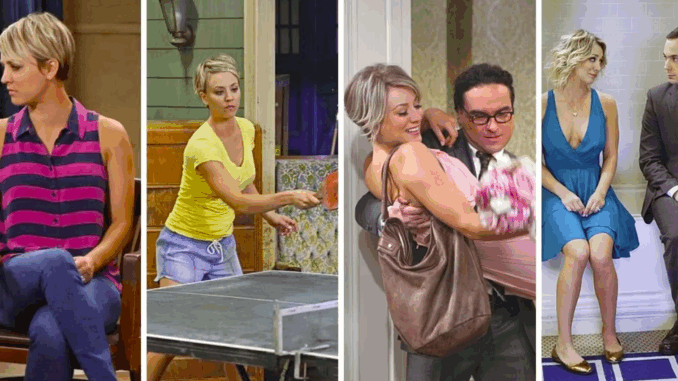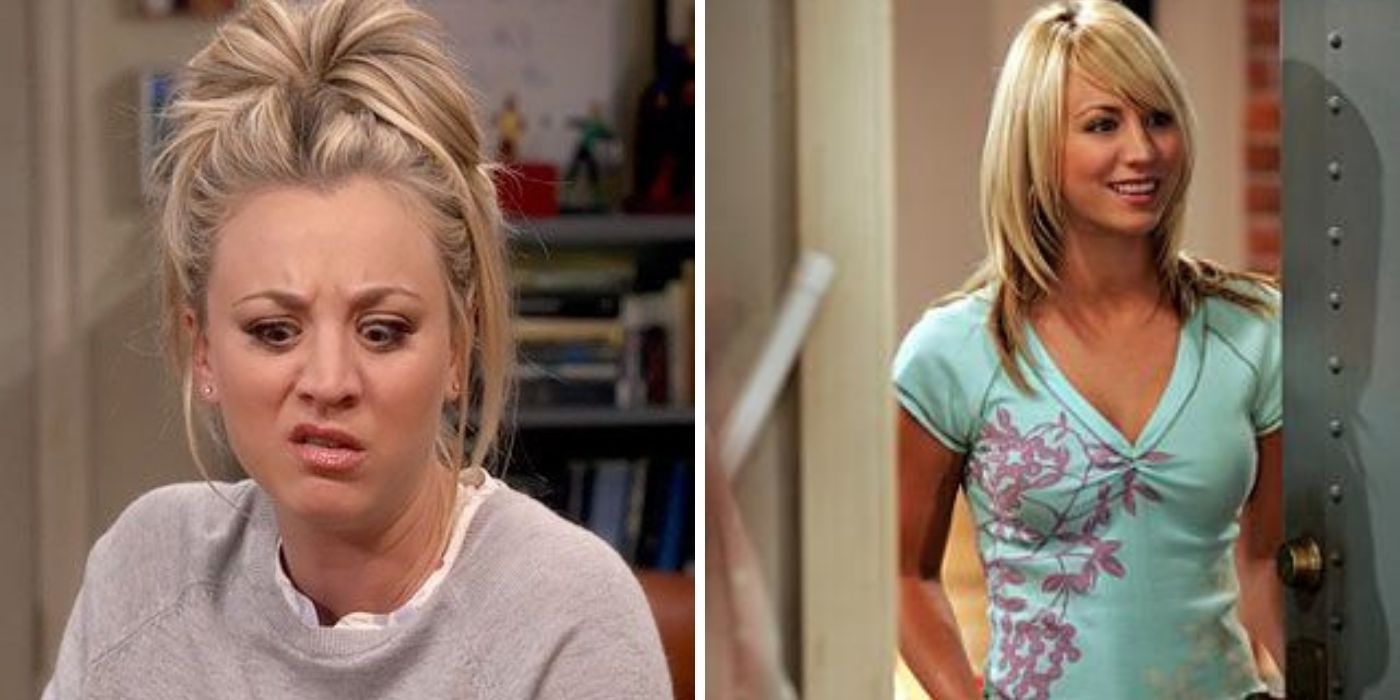
In a show dominated by scientists, equations, and quantum theory, one character without a degree — or even a clear career path — managed to become the emotional cornerstone of The Big Bang Theory. Penny, played by Kaley Cuoco, entered the story as the bubbly neighbor across the hall. But over 12 seasons, she grew into something far more complex: the lens through which audiences viewed the strange, brilliant world of nerd culture — and the glue that held the group together.
The “Girl Next Door” — But Not Just That
When The Big Bang Theory first aired, Penny was introduced as the archetypal “girl next door.” Attractive, outgoing, and seemingly out of place among a group of socially awkward physicists, she was initially framed as a contrast to the others — someone who brought chaos, warmth, and “normalcy” into their highly structured lives.
But even in those early episodes, Penny had agency. She stood up to Sheldon’s quirks, challenged Leonard’s assumptions, and quickly established her presence as more than just a love interest. She was curious, empathetic, and quick-witted, offering an emotional intelligence the group often lacked.
Penny and Leonard: A Love Story of Equals
The relationship between Penny and Leonard was one of the longest-running threads in the series. At first glance, it might have looked like a typical “nerd gets the girl” story. But over time, the show carefully dismantled that idea.
Leonard wasn’t “rewarded” with Penny — he had to earn her trust and respect. And Penny, for her part, struggled with her own insecurities about not being as educated or ambitious as her friends. Their dynamic flipped expectations: Leonard, with his PhD, was often anxious, needy, and insecure, while Penny provided strength and calm.
Their love story was never smooth. They broke up, reconciled, and argued — like any real couple. But by the final season, they were not only married, but equals. Their bond proved that compatibility doesn’t rely on IQ points but on communication, respect, and growth.
Breaking the Dumb Blonde Stereotype
Early seasons occasionally leaned into outdated “dumb blonde” humor — something Kaley Cuoco herself later criticized. But as the show matured, so did Penny. She abandoned acting, pursued a career in pharmaceutical sales, and found unexpected professional success.

In doing so, Penny broke a major sitcom mold. She didn’t need to go back to school or earn a degree to gain credibility. She proved that intelligence comes in many forms — ambition, adaptability, people skills, and grit.
One of the most powerful aspects of Penny’s evolution is that the show allowed her to succeed on her own terms. She wasn’t forced to fit into the academic mold of her friends. Instead, she carved a path that was true to her — and thrived.
The Female Friendships That Redefined the Show
When Amy and Bernadette joined the cast, many expected rivalry or tension. Instead, the show did something surprisingly rare in sitcoms: it celebrated female friendship.
Penny’s bond with Amy was particularly moving. What began as an awkward pairing became one of the series’ most emotionally rewarding relationships. Penny gave Amy confidence and social understanding; Amy gave Penny depth and appreciation for loyalty. Their friendship evolved far beyond surface-level humor — it became a space for honesty, support, and affection.
In many ways, Penny’s growing friendships with the other women on the show allowed her character to mature beyond romantic subplots. She was no longer just “the girl in the group” — she was a core member of the ensemble, with her own arcs, opinions, and power.
Kaley Cuoco’s Performance: The Secret Weapon
While Jim Parsons received much of the critical acclaim (deservedly so), Kaley Cuoco’s contribution to The Big Bang Theory is often underrated. Her comedic timing, emotional accessibility, and ability to pivot between light-hearted scenes and deeply emotional ones made her indispensable.
She could hold her own against Sheldon’s logic, Leonard’s neuroses, and Raj’s awkward charm — all while grounding the show in real-world emotional stakes. Cuoco’s performance brought warmth to the series, giving it the heart it needed to balance its intellectual edges.
The Controversial Ending: Penny’s Pregnancy
In the final season, one plotline sparked debate among fans: Penny’s surprise pregnancy. For several seasons, she had expressed her desire not to have children — a decision that resonated with many viewers. But in the series finale, it was revealed that she was expecting, and seemingly happy about it.
Some fans felt this twist undermined her previous stance, while others saw it as a natural progression of her character’s growth. Did she change her mind? Or did the writers simply choose to revert to a traditional sitcom ending?
Either way, the moment was a reminder that Penny remained one of the most complex and debated characters in the show’s long history.
Conclusion: The Heart of the Big Bang
Penny may not have had a PhD, but she was the emotional intellect of The Big Bang Theory. Through laughter, heartbreak, and plenty of sarcastic eye-rolls, she anchored a group of characters who might otherwise have floated too far into abstraction.
Her evolution — from waitress to wife, from outsider to inner circle — mirrored the evolution of the show itself. And in the end, The Big Bang Theory was never really about science. It was about people. And Penny was the beating heart of them all.